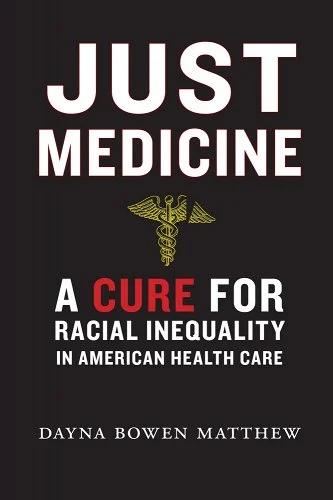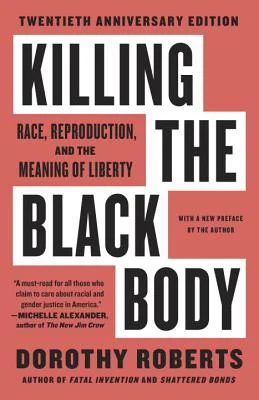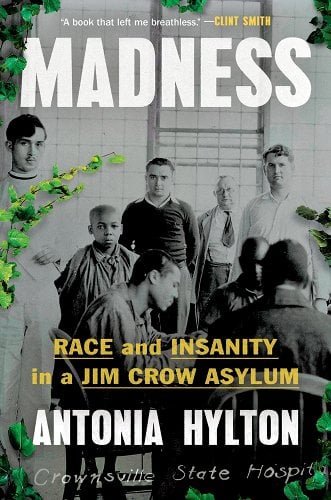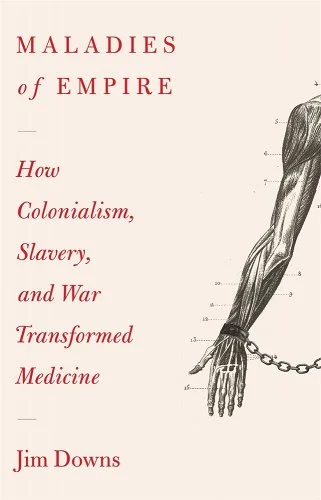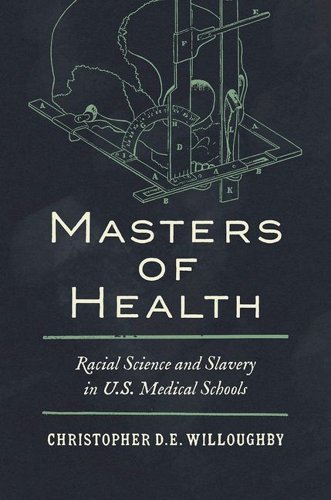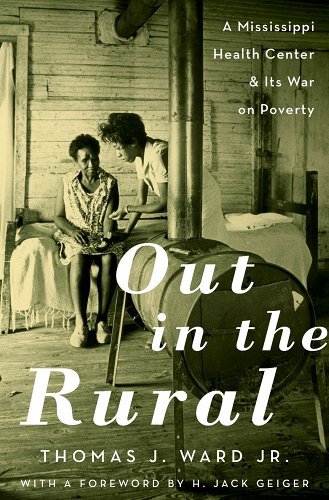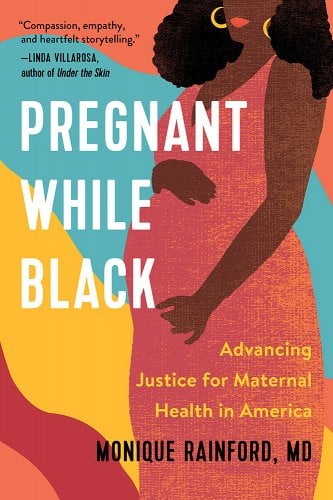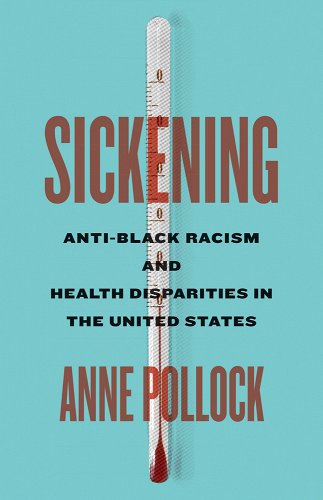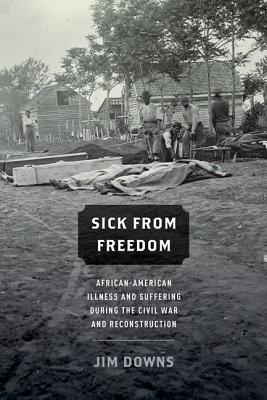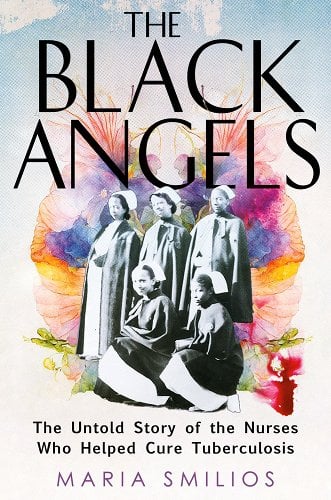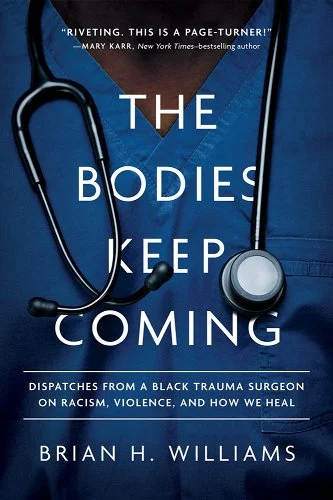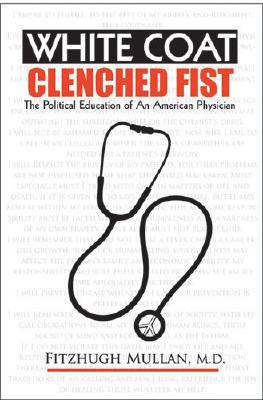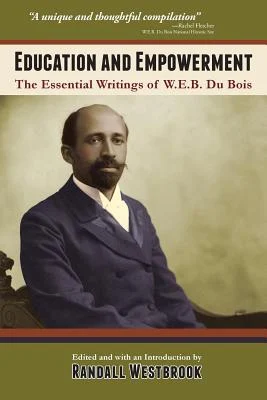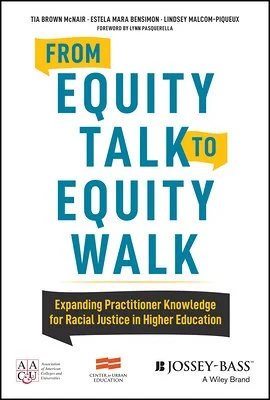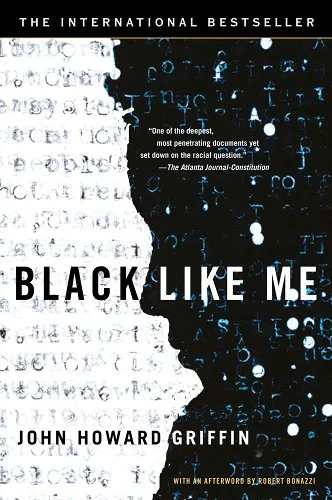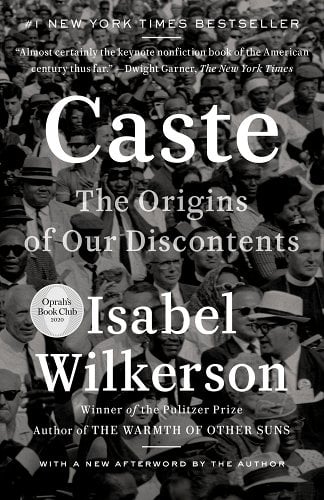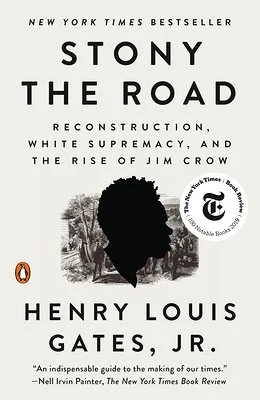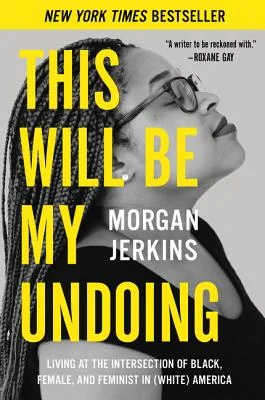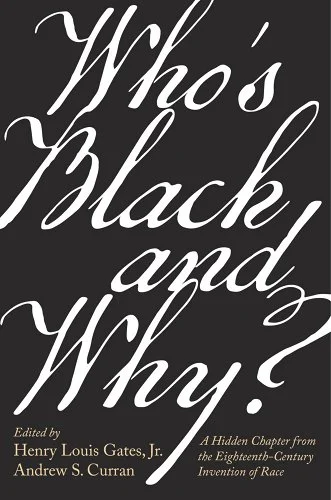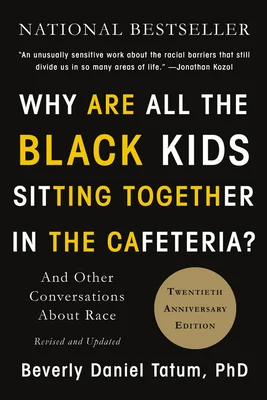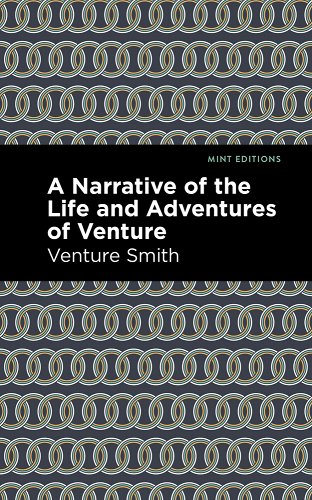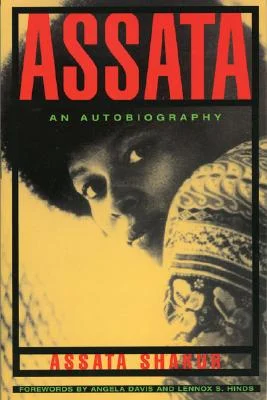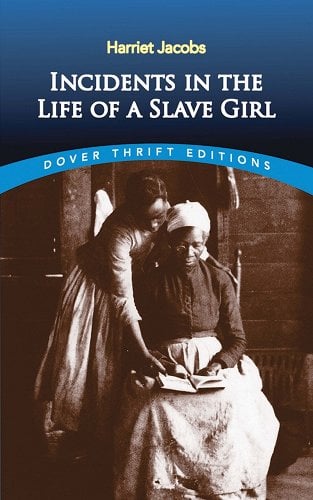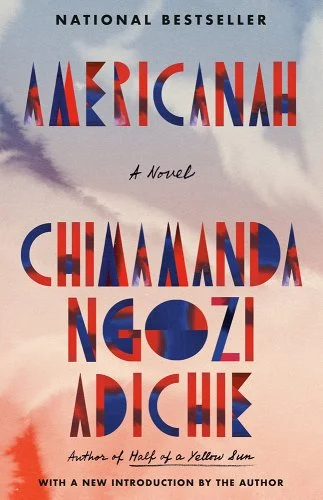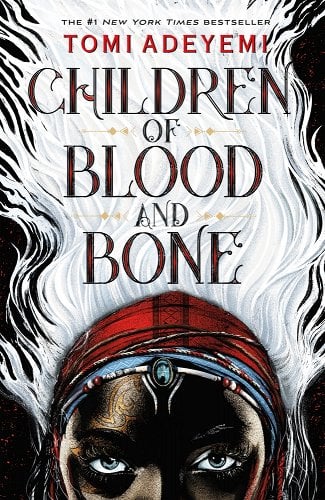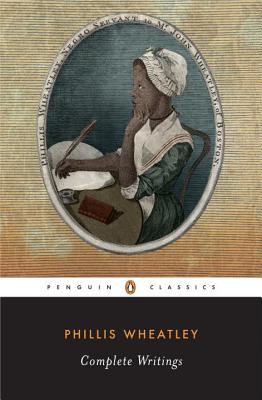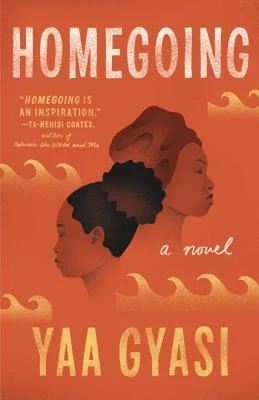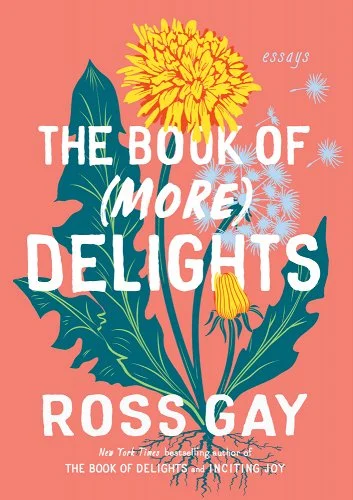Black History Month 2024 Reading List
Published February 13, 2024
Inside OME
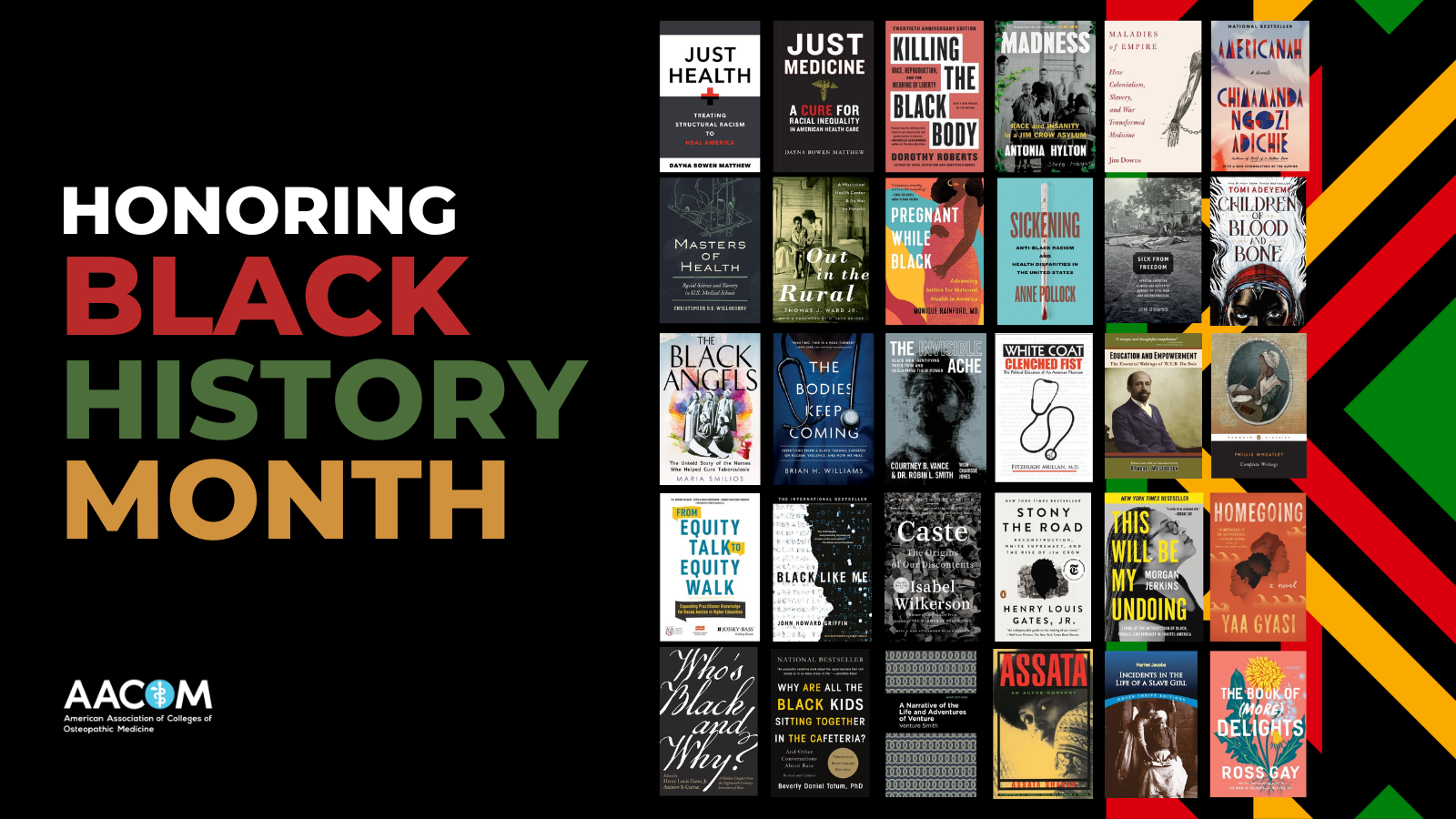
Health and Medicine
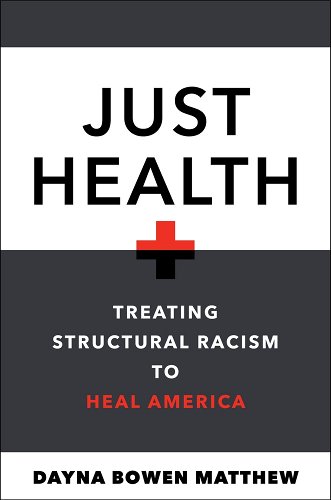 Just Health: Treating Structural Racism to Heal America
Just Health: Treating Structural Racism to Heal America
Timely and accessible, Just Health examines how deep structural racism embedded in the fabric of American society leads to worse health outcomes and lower life expectancy for people of color. By presenting evidence of discrimination in housing, education, employment and the criminal justice system, Dayna Bowen Matthew shows how racial inequality pervades American society and the multitude of ways that this undermines the health of minority populations.
Just Medicine: A Cure for Racial Inequality in American Health Care
Health disparities have remained stubbornly entrenched in the American healthcare system—and in Just Medicine Dayna Bowen Matthew finds that they principally arise from unconscious racial and ethnic biases held by physicians, institutional providers and their patients. Because we have missed this fact, the money we spend on training providers to become culturally competent, expanding wellness education programs and community health centers and even expanding access to health insurance will have only a modest effect on reducing health disparities.
Killing the Black Body: Race, Reproduction, and the Meaning of Liberty
In 1997, this groundbreaking book made a powerful entrance into the national conversation on race. In a media landscape dominated by racially biased images of welfare queens and crack babies, Dorothy Roberts’ Killing the Black Body exposed America's systemic abuse of Black women's bodies. From slave masters' economic stake in bonded women's fertility to government programs that coerced thousands of poor Black women into being sterilized as late as the 1970s, these abuses pointed to the degradation of Black motherhood—and the exclusion of Black women's reproductive needs in mainstream feminist and civil rights agendas.
Madness: Race and Insanity in a Jim Crow Asylum
In Madness, Peabody and Emmy award-winning journalist Antonia Hylton tells the 93-year-old history of Crownsville Hospital, one of the last segregated asylums with surviving records and a campus that still stands to this day in Anne Arundel County, Maryland. She blends the intimate tales of patients and employees whose lives were shaped by Crownsville with a decade-worth of investigative research and archival documents. Madness chronicles the stories of Black families whose mental health suffered as they tried, and sometimes failed, to find safety and dignity. Hylton also grapples with her own family's experiences with mental illness, and the secrecy and shame that it reproduced for generations. In Madness, Hylton traces the legacy of slavery to the treatment of Black people's bodies and minds in our current mental healthcare system.
Maladies of Empire: How Colonialism, Slavery, and War Transformed Medicine
Reexamining the foundations of modern medicine, Jim Downs shows that the study of infectious disease depended crucially on the unrecognized contributions of nonconsenting subjects—conscripted soldiers, enslaved people and subjects of empire. Military doctors learned about the importance of air quality by monitoring Africans confined to the bottom of slave ships. Statisticians charted cholera outbreaks by surveilling Muslims in British-dominated territories returning from their annual pilgrimage. The field hospitals of the Crimean War and the U.S. Civil War were carefully observed experiments in disease transmission. The scientific knowledge derived from discarding and exploiting human life is now the basis of our ability to protect humanity from epidemics. Boldly argued and eye-opening, Maladies of Empire gives a full account of the true price of medical progress.
Masters of Health: Racial Science and Slavery in U.S. Medical Schools
Medical science in antebellum America was organized around a paradox: it presumed African Americans to be less than human yet still human enough to be viable as experimental subjects, as cadavers and for use in the training of medical students. By taking a hard look at the racial ideas of both northern and southern medical schools, Christopher D. E. Willoughby reveals that racist ideas were not external to the medical profession but fundamental to medical knowledge. In this history of racial thinking and slavery in American medical schools, the founders and early faculty of these schools emerge as singularly influential proponents of white supremacist racial science. In documenting these practices Masters of Health charts the rise of racist theories in U.S. medical schools, throwing new light on the extensive legacies of slavery in modern medicine.
Out in the Rural: A Mississippi Health Center and Its War on Poverty
Out in the Rural is the unlikely story of the Tufts-Delta Health Center, which in 1966 opened in Mound Bayou, Mississippi, to become the first rural community health center in the United States. Its goal was simple: to provide healthcare and outreach to the region's thousands of rural poor, most of them Black sharecroppers who had lived without any medical resources for generations. In Out in the Rural, historian Thomas J. Ward explores the health center's story alongside the remarkable life of its founder, Dr. H. Jack Geiger. In addition to providing medical care, the staff of the Tufts-Delta Health Center worked upstream to address the fundamental determinants of health—factors such as education, poverty, nutrition and the environment—and ask the question, "What does it take to stay healthy?" Equal parts social history and personal history, Out in the Rural is a story of both community health and of a stranger's kindness and determination to bring healthcare to areas out of reach.
Pregnant While Black: Advancing Justice for Maternal Health in America
Despite medical advances over the last twenty years, for Black women, the overwhelming dangers of carrying and delivering children remain and it only seems to be getting worse. In Pregnant While Black, Dr. Monique Rainford begins the work of "repairing the damage of the past" with an examination of the conditions that plague Black pregnancies. This important book carries the hopes and dreams of a generation looking to effect change, here and now.
Sickening: Anti-Black Racism and Health Disparities in the United States
From the spike in chronic disease after Hurricane Katrina to the lack of protection for Black residents during the Flint water crisis—and even the life-threatening childbirth experience for tennis star Serena Williams—author Anne Pollock takes readers on a journey through the diversity of anti-Black racism operating in healthcare. She goes beneath the surface to deconstruct the structures that make these events possible, including mass incarceration, police brutality and the hypervisibility of Black athletes' bodies. Ultimately, Sickening shows what these shocking events reveal about the everyday racialization of health in the United States.
Sick from Freedom: African-American Illness and Suffering During the Civil War and Reconstruction
In Sick from Freedom, Jim Downs recovers the untold story of one of the bitterest ironies in American history—that the emancipation of the slaves, seen as one of the great turning points in U.S. history, had devastating consequences for innumerable freed people. With emancipation, African Americans seized the chance to move, migrating as never before. But in their journey to freedom, they also encountered yellow fever, smallpox, cholera, dysentery, malnutrition and exposure. The widespread medical calamity sparked by emancipation is an overlooked episode of the Civil War and its aftermath.
The Black Angels: The Untold Story of the Nurses Who Helped Cure Tuberculosis
In the pre-antibiotic days when tuberculosis stirred people's darkest fears, killing one in seven, white nurses at Sea View, New York's largest municipal hospital, began quitting en masse. Desperate to avert a public health crisis, city officials summoned Black southern nurses, luring them with promises of good pay, a career and an escape from the strictures of Jim Crow. But after arriving, they found themselves on an isolated hilltop in the remote borough of Staten Island, yet again confronting racism and consigned to a woefully understaffed sanatorium, dubbed "the pest house," where it was said that "no one left alive." But despite their major role in desegregating the New York City hospital system—and their vital work in helping to find the cure for tuberculosis at Sea View—these nurses were completely erased from history. Maria Smilios’ The Black Angels recovers the voices of these extraordinary women and puts them at the center of this riveting story, celebrating their legacy and spirit of survival.
The Bodies Keep Coming: Dispatches from a Black Trauma Surgeon on Racism, Violence, and How We Heal
As a Harvard-trained physician, Dr. Brian H. Williams learned to keep his head down and his scalpel ready. As a Black man, he learned to swallow the rage when patients told him to take out the trash. Just days after the tragic police shootings of two Black men, Williams tried to save the lives of police officers shot in Dallas in the deadliest incident for U.S. law enforcement since 9/11. Thrust into the spotlight in a nation that loves feel-good stories about heroism more than hard truths about racism, Williams came to rethink everything he thought he knew about medicine, injustice and what true healing looks like.
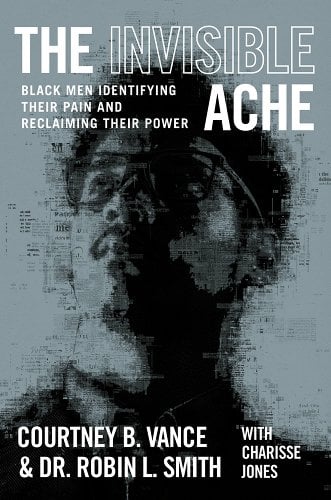
The Invisible Ache: Black Men Identifying Their Pain and Reclaiming Their Power
Early in his career, actor Courtney B. Vance lost his father to suicide. Recently, he lost his godson to the same fate. Still, as mental health discourse hits the mainstream, it leaves the most vulnerable out of the conversation: Black men. In America, we teach that strength means holding back tears and shaming your own feelings. In the Black community, these pressures are especially poignant. Poor mental health outcomes—including diagnoses of depression and anxiety, reliance on prescription drugs and suicide—have skyrocketed in the past decade. Institutionalized racism, microagressions and stress caused by socioeconomic factors have led Black individuals to face worse mental health outcomes than any other demographic. In this book, Courtney B. Vance, along with professional expertise from famed psychologist Dr. Robin L. Smith, seek to change this trajectory.
White Coat, Clenched Fist: The Political Education of an American Physician
In the sixties, Fitzhugh Mullan was an activist in the civil rights struggle. While in medical school, Mullan was shocked by gaps in what the students learned, and the lack of humanity in the classroom. Later, Dr. Mullan was outraged at the conditions he discovered when he began to practice. He helped found the Student Health Organization, organized the Controversial Medical Collective at Lincoln Hospital in the Bronx and struggled to offer improved medical care to those who needed it most and could afford it least. This landmark book charts the state of medical school and practices in the 1960s and 70s. This new edition is updated with a preface in which Dr. Mullan reflects on the changes in the medical field over the last thirty-plus years.
Education
Education and Empowerment: The Essential Writings of W.E.B. Du Bois
This selection of W.E.B. Du Bois' writings is divided into three sections. The first contains the writings of an adolescent Du Bois, who even at the age of fifteen, had the vision to encourage the people of his hometown to engage in literacy activities and to increase their political awareness. The second contains the works that led to Du Bois earning his Harvard doctorate, including a tersely worded letter to former President Rutherford B. Hayes when it appeared that Du Bois might have initially been denied a fellowship. The third includes writings where Du Bois assumed a more combative posture, but in doing so displayed the fire and passion that made him a most influential educational thinker.
From Equity Talk to Equity Walk: Expanding Practitioner Knowledge for Racial Justice in Higher Education
From Equity Talk to Equity Walk offers practical guidance on the design and application of campus change strategies for achieving equitable outcomes. Drawing from campus-based research projects sponsored by the Association of American Colleges and Universities and the Center for Urban Education at the University of Southern California, this invaluable resource provides real-world steps that reinforce primary elements for examining equity in student achievement, while challenging educators to specifically focus on racial equity as a critical lens for institutional and systemic change.
Understanding Racism
Black Like Me
In the Deep South of the 1950s, a color line was etched in blood across Louisiana, Mississippi, Alabama and Georgia. Journalist John Howard Griffin decided to cross that line. Using medication that darkened his skin to deep brown, he exchanged his privileged life as a Southern white man for the disenfranchised world of an unemployed Black man. What happened to John Howard Griffin—from the outside and within himself—as he made his way through the segregated Deep South is recorded in this searing work of nonfiction. His audacious, still chillingly relevant eyewitness history is a work about race and humanity every American must read.
Caste: The Origins of Our Discontents
Isabel Wilkerson's Caste: The Origins of Our Discontents argues that America operates on a rigid caste system, similar to India and Nazi Germany, but based on race. This hidden social hierarchy, she asserts, is far more influential than class or racism in shaping life outcomes, health and even perceptions of self-worth. Through personal stories and historical analysis, Wilkerson exposes the "pillars" upholding this system and calls for acknowledging its existence as a crucial step towards dismantling its damaging effects on American society.
Stony the Road: Reconstruction, White Supremacy, and the Rise of Jim Crow
The abolition of slavery in the aftermath of the Civil War is a familiar story, as is the civil rights revolution that transformed the nation after World War II. But the century in between remains a mystery: if emancipation sparked "a new birth of freedom" in Lincoln's America, why was it necessary to march in Martin Luther King, Jr.'s America? In this book, Henry Louis Gates, Jr., one of our leading chroniclers of the African American experience, seeks to answer that question. An essential tour through one of America's fundamental historical tragedies, Stony the Road is also a story of heroic resistance, as figures such as W. E. B. Du Bois and Ida B. Wells fought to create a counter-narrative, and culture, inside the lion's mouth.
This Will Be My Undoing: Living at the Intersection of Black, Female, and Feminist in (White) America
Morgan Jerkins takes on perhaps one of the most provocative contemporary topics: What does it mean to "be"—to live as, to exist as—a Black woman today? This is a book about Black women, but it's necessary reading for all Americans. Doubly disenfranchised by race and gender, often deprived of a place within the mostly white mainstream feminist movement, Black women are objectified, silenced and marginalized with devastating consequences, in ways both obvious and subtle, that are rarely acknowledged in our country's larger discussion about inequality. In This Will Be My Undoing, Jerkins becomes both narrator and subject to expose the social, cultural and historical story of Black female oppression that influences the Black community as well as the white, male-dominated world at large.
Who's Black and Why?: A Hidden Chapter from the Eighteenth-Century Invention of Race
In 1739 Bordeaux's Royal Academy of Sciences announced a contest for the best essay on the sources of "blackness." Sixteen essays, written in French and Latin, were ultimately dispatched from all over Europe. Documented on each page are European ideas about who is Black and why. Looming behind these essays is the fact that some four million Africans had been kidnapped and shipped across the Atlantic by the time the contest was announced. All the submissions circulate around a common theme: the search for a scientific understanding of the new concept of race. More important, they provide an indispensable record of the Enlightenment-era thinking that normalized the sale and enslavement of Black human beings. Translated into English and accompanied by a detailed introduction and headnotes written by Henry Louis Gates, Jr., and Andrew Curran, each essay included in this volume lays bare the origins of anti-Black racism and colorism in the West.
Why Are All the Black Kids Sitting Together in the Cafeteria?
Walk into any racially mixed high school and you will see Black, White and Latino youth clustered in their own groups. Is this self-segregation a problem to address or a coping strategy? How can we get past our reluctance to discuss racial issues? Beverly Daniel Tatum, a renowned authority on the psychology of racism, argues that straight talk about our racial identities is essential if we are serious about communicating across racial and ethnic divides and pursuing antiracism.
Autobiographies
A Narrative of the Life and Adventure of Venture
Written while Venture Smith was living in freedom on his own farm in Connecticut, A Narrative of the Life and Adventures of Venture is recognized by scholars as a pioneering work of African American nonfiction and one of the earliest known slave narratives in American history. Upon arrival in the British colony, Smith was put to work in the Mumford household, gaining the trust of his enslaver while enduring the abuses of Mumford's young son. At 22, he married Meg, a fellow enslaved woman, and was soon swept up in an escape attempt with an Irish indentured servant. Betrayed at Montauk Point by the Irishman, separated from his wife and daughter and subjected to worse abuses than before, Smith sought to gain his freedom by any means necessary.
Assata: An Autobiography
On May 2, 1973, Black Panther Assata Shakur (aka JoAnne Chesimard) lay in a hospital, close to death, handcuffed to her bed, while local, state and federal police attempted to question her about the shootout on the New Jersey Turnpike that had claimed the life of a white state trooper. Long a target of J. Edgar Hoover's campaign to defame, infiltrate and criminalize Black nationalist organizations and their leaders, Shakur was incarcerated for four years prior to her conviction on flimsy evidence in 1977 as an accomplice to murder. This intensely personal and political autobiography belies the fearsome image of JoAnne Chesimard long projected by the media and the state.
Incidents in the Life of a Slave Girl
The true story of an individual's struggle for self-identity, self-preservation and freedom, Incidents in the Life of a Slave Girl remains among the few extant slave narratives written by a woman. This autobiographical account chronicles the remarkable odyssey of Harriet Jacobs (1813-1897) whose dauntless spirit and faith carried her from a life of servitude and degradation in North Carolina to liberty and reunion with her children in the North. Written and published in 1861 after Jacobs' harrowing escape from a vile and predatory master, the memoir delivers a powerful and unflinching portrayal of the abuses and hypocrisy of the master-slave relationship.
Essays, Fiction and Poetry
Americanah
In Chimamanda Ngozi Adichie's Americanah, Ifemelu, a young Nigerian woman, navigates love, identity and race across continents. Immigrating to the United States for college, she confronts racial realities unseen in Nigeria, chronicling them in a popular blog. Meanwhile, her first love Obinze struggles with visa rejections and builds a different life back home. Years later, their paths converge again, forcing them to confront past choices and redefine love amidst shifting circumstances, both personal and societal, highlighting the complexities of diasporic experiences.
Children of Blood and Bone
Zélie Adebola remembers when the soil of Orïsha hummed with magic. Burners ignited flames, but everything changed the night magic disappeared. Under the orders of a ruthless king, maji were killed, leaving Zélie without a mother and her people without hope. Now Zélie has one chance to bring back magic and strike against the monarchy. With the help of a rogue princess, Zélie must outwit and outrun the crown prince, who is hell-bent on eradicating magic for good. With five starred reviews, Tomi Adeyemi's West African-inspired fantasy debut, and instant #1 New York Times Bestseller, conjures a world of magic and danger.
Complete Writings
In 1761, a young girl arrived in Boston on a slave ship, was sold to the Wheatley family and given the name Phillis Wheatley. Struck by Phillis' extraordinary precociousness, the Wheatleys provided her with an education that was unusual for a woman of the time and astonishing for a slave. After studying English and classical literature, geography, the Bible and Latin, Phillis published her first poem in 1767 at the age of 14, winning much public attention and considerable fame. When Boston publishers who doubted its authenticity rejected an initial collection of her poetry, Wheatley sailed to London in 1773 and found a publisher there for Poems on Various Subjects, Religious and Moral. This volume collects both Wheatley's letters and her poetry, including a poignant plea to the Earl of Dartmouth urging freedom for America and comparing the country's condition to her own.
Homegoing
Ghana, eighteenth century: two half-sisters are born into different villages, each unaware of the other. One will marry an Englishman and lead a life of comfort in the palatial rooms of the Cape Coast Castle. The other will be captured in a raid on her village, imprisoned in the very same castle and sold into slavery. Homegoing follows the parallel paths of these sisters and their descendants through eight generations. Yaa Gyasi's extraordinary novel illuminates slavery's troubled legacy both for those who were taken and those who stayed—and shows how the memory of captivity has been inscribed on the soul of our nation.
The Book of (More) Delights: Essays
In essays that can be at once intimate and political, Ross Gay shows us why he has made the subject of Black joy his own. Even as he practices delight, he doesn’t shy away from complexities of racism in America or the ecological and psychic violence of our consumer culture or the loss of those he loves. More than anything else, though, Gay reveals the beauty of the natural world—the garden, the orchard, the flowers emerging from cracks in the sidewalk, the elegant movements of geese tending to their goslings and the trillion mysteries of this glorious earth.
AACOM thanks Aisha Ali, MHRM, research analyst, AACOM; Carley Andrew, Sam Houston State University College of Osteopathic Medicine; Renee J. Crawford, DO, chief resident, Phoenix Children’s Pediatric Residency Program Alliance; Laura Gonzalez, digital marketing coordinator, California Health Sciences University; Alexis Mbakwe, MS, OMS IV, West Virginia School of Osteopathic Medicine; Shatae Mullins, LPC, behavioral health and diversity specialist, Idaho College of Osteopathic Medicine; Marcine Pickron-Davis, PhD, chief diversity and community relations officer, Philadelphia College of Osteopathic Medicine; and Linda Solis, PhD, associate professor of applied humanities, University of the Incarnate Word School of Osteopathic Medicine, for sharing these recommendations.
Anything we missed? Share what you’re reading this year by tagging us on Twitter/X at @AACOMmunities.

